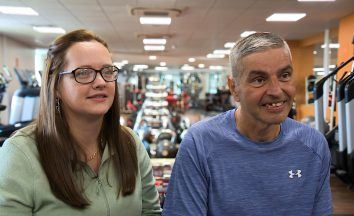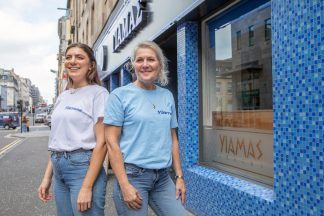Scottish health researchers are at the forefront of a new €6m project to make artificial intelligence-assisted (AI) capsule endoscopy a part of future bowel cancer diagnostics.
Bowel cancer is the second most-common cause of cancer death in Scotland, with around 1,600 people dying of the disease each year.
The current detection method involves inserting an endoscope, a thin flexible tube with a camera on the end, into a patient’s colon which then travels around the large bowel allowing doctors to check for cancer.
Clinical Capsule Endoscopy (CCE) utilises a ‘smart pill’ containing cameras which, once swallowed by a patient, records images of the intestines as it passes through.
At present, images captured by the capsules are reviewed by trained doctors, but AI offers the potential to safely and ethically speed up the process, make it more cost-effective and increase its use.
A consortium of 12 partners across Europe has now received a £6m grant to work towards eliminating the current medical, technical, and economic barriers to the adoption of AI-supported image analysis in large bowel camera capsule endoscopy (AICE).
This includes demonstrating that AI algorithms are at least as effective as humans at analysing endoscopy images and identifying where further investigation is required.
The four-year project involves the University of Strathclyde, NHS Highland and Islands and two of Scotland’s innovation centres – The Data Lab and the Strathclyde-hosted Digital Health and Care Innovation Centre.
The expected benefits include earlier initiation of treatment, less advanced staged cancers, fewer complications related to the diagnostic procedure, better patient acceptability and compliance and a significant reduction in costs from both diagnostics and treatment. It also has potential to reduce capacity pressures in NHS health boards across the UK.
Strathclyde is leading work to develop and validate patient reported experience measures for capsule endoscopy, as well as the design and prototyping of a digital patient engagement tool to support participation in the procedure, adherence, and report access.
Researchers will also develop nine AI algorithms which will be tested and validated in clinical settings in Denmark and by NHS Highland.
Professor Roma Maguire, director of the Health and Care Futures initiative at the University of Strathclyde, said: “Capsule endoscopy, particularly AI-assisted, has huge potential to improve the early diagnosis of bowel cancer, but for such an approach to be adopted it has to be acceptable to patients.
“We are developing digital tools that will help us to understand patient outcomes of capsule endoscopy and crucially patients’ experience of, and feelings about, this procedure.
“This is a really pioneering project involving partners from across Scotland who are contributing their expertise.”
Brian Hills, chief executive of The Data Lab, said: “This could be game-changing for early bowel cancer detection – which is so vital in improving survival rates of the disease – with the potential to dramatically benefit healthcare systems right across the country by using AI to help clinicians to spot the early warning signs of this deadly disease and save lives.
“The project demonstrates how Scotland is very much at the forefront of global healthcare innovation. It has the potential to make bowel cancer diagnosis and treatment more cost effective, less invasive, and easier for patients than existing procedures, and has fantastic potential to reduce the capacity pressures NHS health boards across the UK are experiencing.”
Follow STV News on WhatsApp
Scan the QR code on your mobile device for all the latest news from around the country


 iStock
iStock




















